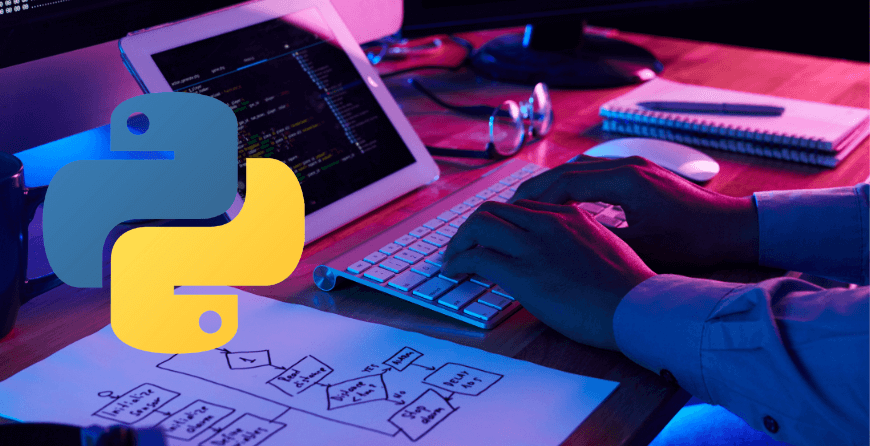According to the TIOBE (The Importance of Being Earnest) index, Python was the most popular programming language in 2022 with the #1 spot. If you want to develop a python application with ease, then you will need a Python framework.
A framework provides a defined structure. Because of that, developers can design and write core code with ease without concentrating on other elements of programming.
Python outgrew its competitors such as Java and C. Because of its easy learning curve and domain versatility, it’s considered an all-rounder solution, and to further push its development practices, communities have developed different Python frameworks to serve its different niches.
Many Python frameworks exist that are domain-specific and provide unique operations. So if you are planning to begin your development journey with Python, then this article will help you recognize the top 10 Python frameworks a developer must know in 2022. Follow the article till the end to find out the best python frameworks of 2022.
What is Python
Python is a general-purpose interpreted object-oriented programming language that is used in various domains such as web development, mobile development, machine learning, data science, and artificial intelligence.
It was created in 1991 by Guido Van Russom to reduce the hassles of writing complex code structures and improve code readability.
Python is one of the easiest programming languages for anyone without a computer science background who wants to explore the world of tech solutions.
Furthermore, its syntax is easy to understand and it requires less coding, because of which it has gained popularity among experienced and aspiring developers to use this language as their primary development language.
Are You Looking to Hire Python Developers?
We have pre-vetted Python developers ready to work in your time zone. Lets's discuss your project in detail.
Hire Python DevelopersWhat are Python Frameworks?
A framework is a platform made up of customization tools that aid in accelerating the software development cycle. It might contain different templating techniques, a templating engine, different code libraries, and UI elements.
A Python framework usually consists of similar customizable assets but mostly contributes to core Python development practices such as web and mobile application development, ML models, and AI-based software solutions.
These frameworks make the developer’s life easier by providing a structured platform that can help them focus more on convention and logic and less on the configurational part. They increase the capabilities of scaling any solution to provide users with wider access.
Seven Types of Python Frameworks
There are several Python frameworks available and they can be categorized based on their usage and application.
1. Python Web Frameworks
These Python frameworks help developers to create web applications using Python. Some popular web frameworks include Django, Flask, Pyramid, Bottle, and web2py.
2. Python Scientific Computing Frameworks
These Python frameworks help developers with scientific computing and data analysis. Some examples of Scientific Computing Frameworks for Python are NumPy, SciPy, Pandas, and Scikit-learn.
3. Python Game Development Frameworks
These Python frameworks are designed for creating games using Python. Few examples of Python Game Development Framework are Pygame and PyOpenGL.
4. Python GUI Frameworks
These frameworks help developers to create graphical user interfaces (GUIs) for their applications. Some popular GUI frameworks include PyQt, wxPython, and Tkinter.
5. Python Testing Frameworks
These Python frameworks help developers with testing and debugging their code. Few popular examples of Testing frameworks are Pytest, Nose, and UnitTest.
6. Python Microframeworks
These are lightweight web frameworks that focus on simplicity and minimalism. Few Examples of Testing Frameworks for Python are Bottle and Flask.
7. Python Asynchronous Frameworks
These Python frameworks help developers create asynchronous applications using Python. Some examples of Asynchronous frameworks are Asyncio, Tornado, and Twisted.
Top 10 Python Framework List
1. Django
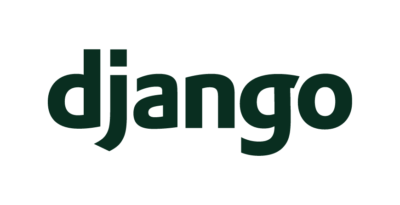
- Django is a full-stack framework and is mainly used for web development. It is versatile and contains all the necessary web development code libraries, templating engines, and UI elements, so you can make any type of website with varying complexity.
- Additionally, it has an advantage over other frameworks due to its adaptability to deliver content in any format (including XML, HTML, JSON, HTTP, and RSS feeds), and for this reason, many developers consider Django as one of the best Python frameworks for the backend.
- Moving ahead, Django comes with robust security that provides developers with a secure way to protect user accounts and passwords, avoiding possible vulnerabilities such as storing a password with a hash and putting session information in cookies. Passwords are safeguarded by Django using a cryptographic hash function to ward off online dangers.
- Scalability is another advantage of Django due to its “Shared Nothing” component-based architecture, where each component is independent of the others and can be swapped out depending on the situation. Because of this, Django is one of the best Python frameworks for corporations and other tech behemoths to scale their applications with the necessary hardware.
Features:-
- > Blazing fast.
- > Built-in ORM.
- > Robust security.
- > Highly scalable.
- > URL routing.
- > Generates authentication reports.
- > Prebuilt libraries.
- > Content delivery in any format.
Related Blog:
2. Bottle
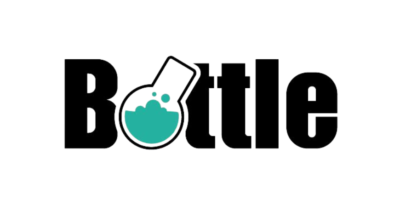
- The Bottle is one of the micro python frameworks that creates a single source file for every other application hence it is the ideal python framework for building small applications. Aside from this, Bottle’s primary objective is the creation of Application Programming Interfaces (APIs).
- It’s popular because it doesn’t need any dependencies other than the standard Python library to build a web application. One of the main benefits of the Bottle is that it enables programmers to create solutions that are close to hardware specifications.
Features:-
- > Request dispatching route with URL parameters support.
- > Built-in HTTP server.
- > Tons of plugin support for various databases.
- > Supports third-party template engines.
3. CherryPy
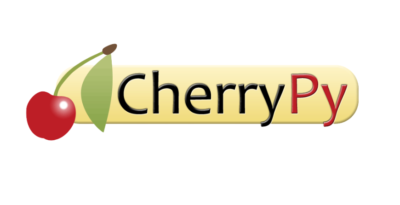
- CherryPy is one of the most widely used open-source object-oriented Python frameworks. It has been serving web development with its minimalist approach for a decade now. In terms of functionalities, it has all the necessary features, such as data accessing, templating UI elements, coverage, profiling, testing, and many others which makes it an ideal python framework for backend.
- It has its own built-in server which it uses to build its web apps, and it stands out from others because it can support any OS that supports Python.
Features:-
- > Supports multi-server operations.
- > Platform independent.
- > Amazing tools for authentication, caching, encoding, static content, and much more.
- > Built-in plugin system.
- > Compatible with HTTP/1.1 WSGI thread-pooled web server.
- > Robust configuration.
- > Runs on Android OS.
4. Flask

- Flask is one of the lightweight popular Python frameworks that is used to build robust web applications. It is a WSGI(Web Server Gateway Interface) framework and is designed to get started easily and quickly, which makes it an ideal choice for beginners, to begin with, its simplistic approach.
- Flask suggests appropriate steps to developers that make the development cycle much easier. Moreover, because it does not enforce dependencies, developers get the choice to opt for their favored libraries and tools. Making it one of the most flexible Python frameworks.
Features:-
- > Built-in Jinja 2 templating engine.
- > Built-in Werkzeug WSGI toolkit.
- > Inbuilt debugger.
- > Provide cookies for client-side sessions.
- > Supports RESTful request dispatching.
- > Integrated unit testing.
5. Web2Py
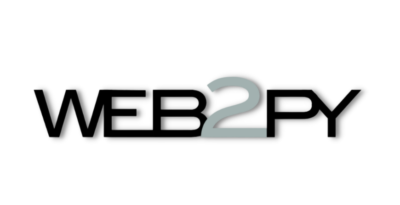
- Web2Py is one of the fullstack python frameworks. The main highlight of Web2Py is that it is backward compatible, which means a newer version of code libraries and other UI elements can be easily implemented on its older versions. Furthermore, it’s easy to run and doesn’t require any installation or configuration.
- It is open source and free to use, similar to other Python frameworks, and it has an advantage over some of its rivals because it is platform-independent. Web2Py has an inbuilt code IDE that has all the necessary features of any IDE, such as a debugger, a code editor, and a one-click deployment.
Features:-
- > Backward compatibility
- > Platform independent.
- > Runs with any web server.
- > Multiple protocols are supported for readability.
- > Supports MVC architecture.
- > Secure.
6. Pyramid
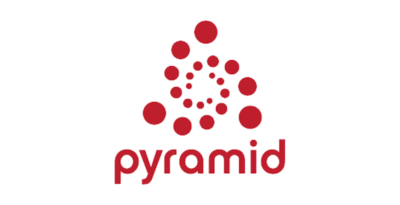
- Pyramid is one of the best minimalistic Python frameworks which focuses on building basic web apps. It runs on Python 3 and is capable of creating easy and complex web applications. Moreover, it has been gaining huge popularity among experienced developers because it lets them choose a variety of different options in templating, database, and security options.
- The Pyramid consists of numerous extension facilities to elevate developers’ web development practices. The transparency and quality features of this framework attract almost every other developer to adapt to its ecosystem.
Features:-
- > Produces both easy and complex web apps.
- > Structure validation and generation via HTML.
- > High-quality documentation.
- > Test and documentation coverage.
- > High performance.
- > Flexibility to configure add-ons.
- > Numerous extension facilities.
7. Aiohttp
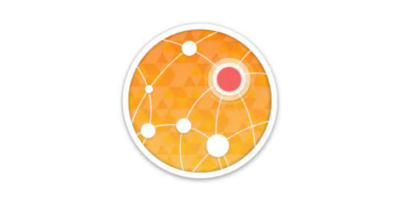
- Aiohttp is among the best asynchronous Python frameworks that use Python’s asyncio library. It heavily relies on Python 3.5 features such as await and async. Aside from being a web server framework, it also serves as a client framework.
- It offers a request object and a router to make it possible to direct queries to programs designed to deal with them. Moreover, Aiohttp supports both server WebSockets as well as client WebSockets without the hassles of callbacks.
Features:-
- > Supports both client and HTTP servers.
- > Run on both server and client WebSockets.
- > Effective view building.
- > Provides Middleware support.
- > Provides pluggable routing.
8. CubicWeb
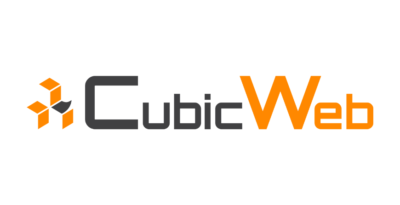
- CubicWeb is among the best fullstack Python frameworks built by Logilab with semantic web principles. It is free and open source, which means it can be used by anyone who wants to explore the realms of web development.
- It stands out among other Python frameworks with its cube functionality, which allows the reusability of its components. Moreover, CubicWeb has been seen as the best Python framework for building data-centric solutions.
Features:-
- > OWL and RDF support.
- > Cube functionality(reusable components).
- > Uses RQL embedding to resolve database queries.
- > Support for multiple databases.
9. Giotto
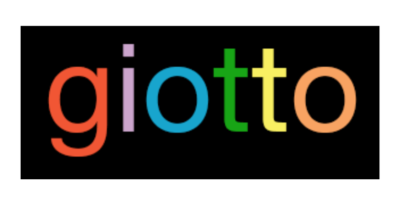
- Giotto is a fullstack python framework that is used to build web applications in a functional style. Similar to some of the other Python frameworks, it is based on the MVC architecture and allows web developers, designers, and other roles to work independently with the help of a model, view, and controller in order. Moreover, It also allows developers to build apps on the web, chat solutions, and command lines through the use of controller modules.
Features:-
- > Auto URL routing.
- > Provides Jinja2 and HTML templates.
- > Generic type models and views.
- > Supports multi-pluggable controllers
10. Dash
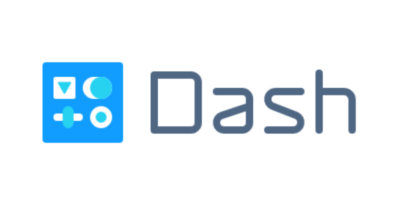
- Dash is one of the best micro python frameworks for building analytical web apps. It is an ideal choice for developers working in the data science domain because of its insightful data representation on a website. It provides a point and click interface to models written in Python, making dashboard generation faster. As dash applications can be rendered in the web browser and can be deployed on the web server, they are considered cross-platform and ready for mobile-based.
Features:-
- > Reduces complex coding hassles.
- > Highly customizable.
- > Error handling.
- > LDAP integration.
- > Tons of plugin support.
- > Easy and intuitive user interface.
Python Frameworks in Other Domains
Python is great for web development, and no one can deny the fact that it has a flourishing future ahead considering the number of frameworks supporting the domain. However, the roots of this programming language have spread its capabilities.
For some years now, Python has been used for data science and machine learning, which are some of the most popular and trending domains currently. This has again resulted in the origin of new Python frameworks for data science and machine learning, and as many seek to learn these, we have listed some of the best Python frameworks for machine learning and data science.
Python Frameworks for Machine Learning and Data Science
- Numpy.
- Tensorflow
- Pandas.
- Matplotlib.
- Sci-kit learn.
- SpaCy.
- Pytorch.
- H2O.
- Shogun.
Conclusion
Frameworks play a critical role in the development cycle, as they ease out the developer’s work by carrying out tedious hassles such as configuration. Python is a versatile programming language as it is used in different domains.
Though web development is its prime focus, it has expanded its operations in domains such as data science and machine learning, to power these technologies. The above list of top Python frameworks is indeed helpful and should be considered by every developer to uplift their development practices.
